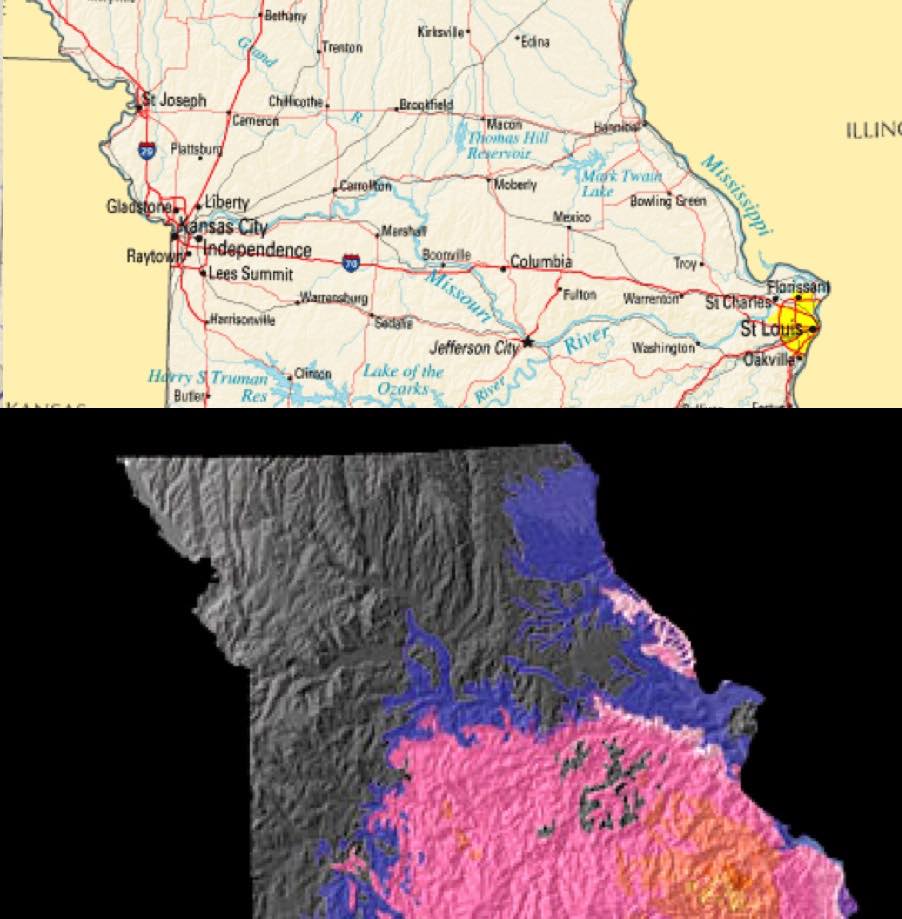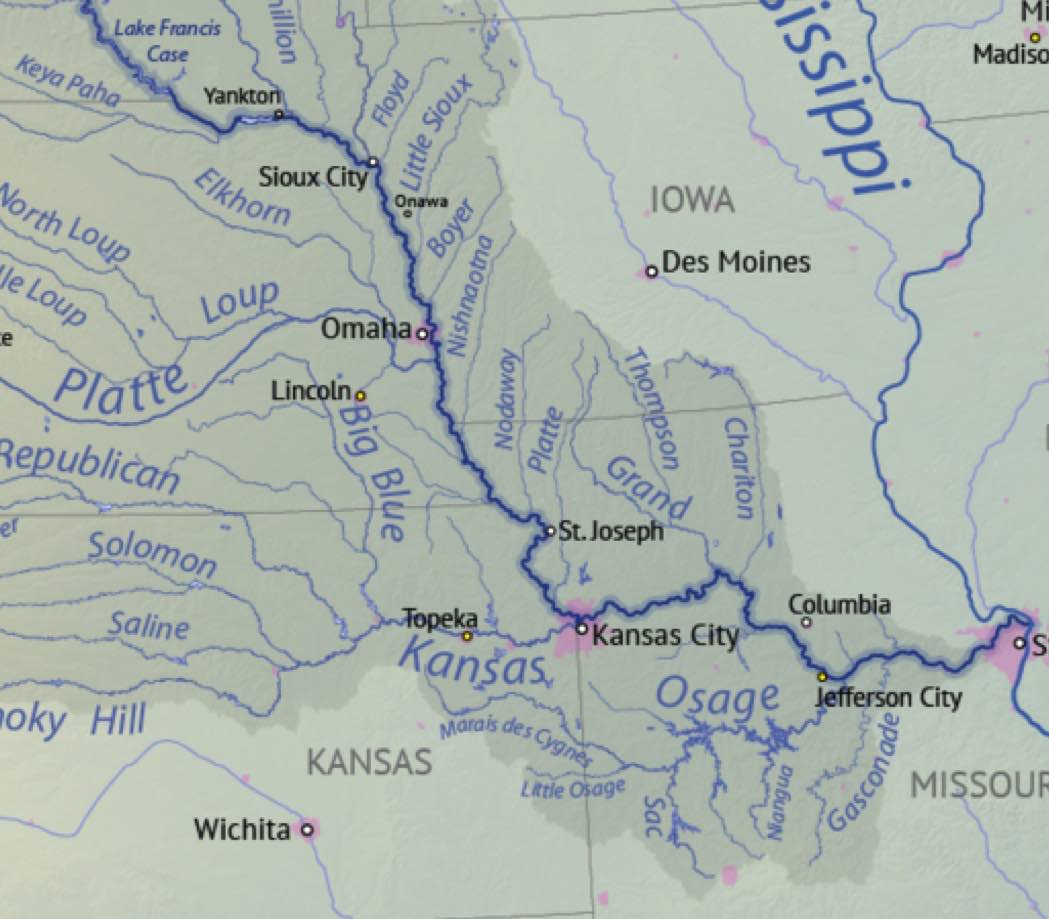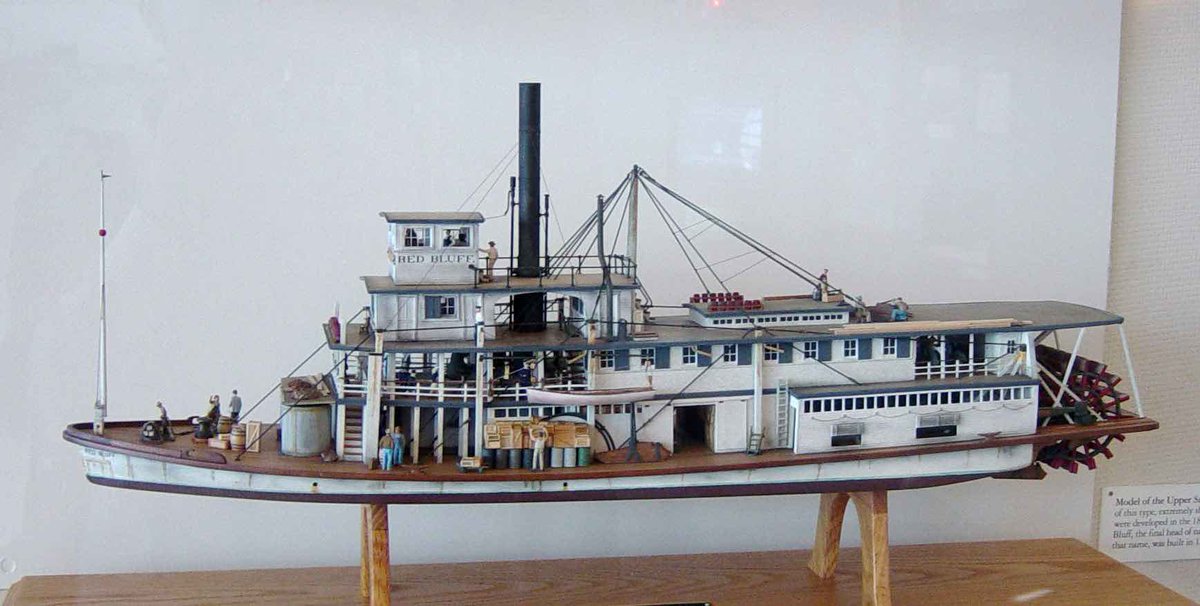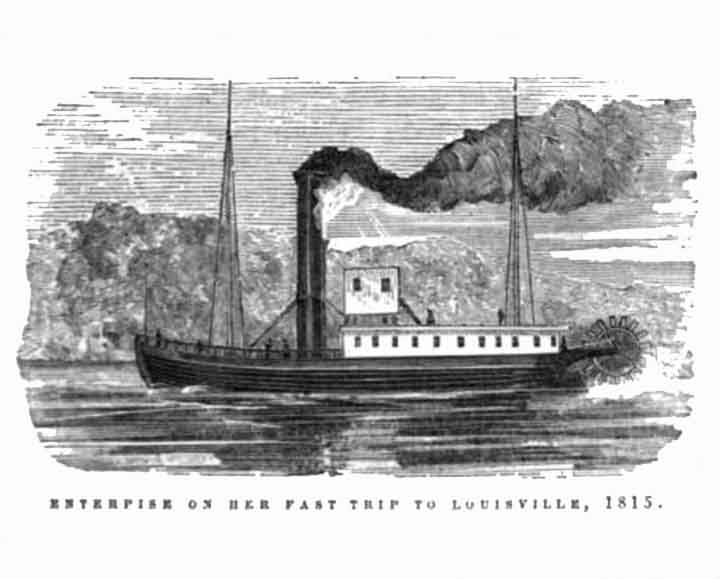modern roads obscure the geographic facts that our ancestors had to deal with. the land route west of St Louis is barred by multiple rivers and low ridges. the Missouri River became the highway to Kansas City, at the mouth of the Kansas River, where the Missouri turns north.
in Kansas City on the Missouri River, some river boat repair shops were required. by 1880 Kansas City was growing and the center for all river traffic from the upper Great Plains. the upper Missouri required smaller boats that the Mississippi.
in 1885 Dr G. moved to KC.
in 1885 Dr G. moved to KC.
G was my great great grandfather. 'Dr' G was aged 31 with a wife and 3 young kids. He has lost his medical license in Illinois and was starting over. G quickly learned everything about steam engines and established a small repair shop. He worked nights and studied.
business was booming along the riverfront and soon Dr G had a larger shop and several employees. then without warning, G's wife (my g-g-granma, name unknown) took ill and died. G's children were aged about 7, 5, and 2.
G haired a nanny and bought a house.
G haired a nanny and bought a house.
G became a businessman with a large shop on the river and a large house in KC Kansas, but he did not remarry. in 1894 his son (16) joined the Navy and his daughter (14) ran away from home. only his youngest son Bonnie (12) remained.
Bonnie was my great-grandpa.
Bonnie was my great-grandpa.
i had a picture of Bonnie. a tall, handsome but somber man with dark hair. he looks sad. i suspect G was not a nice Dad, beat his kids with a belt, berated them. i feel very sorry about what happened to Bonnie.
Bonnie grew up and married a young woman, they haver two sons: George and Fred. in 1909, when Fred was 4yo, Bonnie abandoned his wife Nanna and ran off with another woman.
Nanna & sons moved into G's house. Fred was my grandpa.
Nanna & sons moved into G's house. Fred was my grandpa.
now the stage is set for my beginning, my family. Grandpa G was the patriarch and ran a steam-ship business. in his house live his two young grandsons & their ma. G is 55 years old. he starts taking the boys to work with him. the eldest boy doesn't like it, but Fred thrives.
Fred, my grandpa, started working on his grandpa's Steam Engine shop from age of 4-5, learning everything about fashioning metal. by age 8 Fred could rivet large boilers and was soon the most useful assistant G had. G had both Steam and Electrical engineering licenses.
the riverboat business was still very much alive in 1910 on the Missouri River. large boats could travel as far as Kansas City. upstream smaller boats were used. G's shop made engines and some small steam-powered barges used on the Platte.
as Fred (my grandpa) worked in his grandpas shop, he begin to observe some unusual activities. men in suits coming around to talk with grandpa. late night shipments of boxes. Fred by a young age figured out that G was in the rum running business. Kansas was a dry state.
Dr G has connections in St Louis and all the way up the Missouri river as far as boats could go. but probably the bulk of traffic was directly across the river from Missouri to Kansas.
G had a sleek tiny steamboat of his own design, one that had oar locks and could be rowed silently. he built several of this model. they were smuggler boats for running the swift broad Missouri river at night. the men in suits bought them.
the "men in suits" were from the Missouri side of the river. Kansas City, Missouri had several strong organized crime rackets in the early 20th century. G lived on the Kansas side, as did all my family.
Kansas had a few large steamboats, but in 1864 the state declared the Kansas River nonnavigable. Railroads, bridges, dams were built. Kansas was a very conservative state and by nature it turned also anti-riverboat. only the traffic on the Missouri continued.
G himself has a license to build steam engines, not boats. there was a gray area with steam powered barges G sold out of state in Nebraska. Kansas was also dry and religious. Dr G was neither.
G was a man much like myself, i think. he lived on the borderland.
G was a man much like myself, i think. he lived on the borderland.
this map shows some minor rivers upstream from Kansas City. farmers transported livestock and produce by wagon, boat, raft, or barge to the Missouri River. it was purchased by agents on the riverbank and loaded into riverboats bound for for Kansas City.
this wild riverfront market did not last long, RR routes directly to Chicago were more significant and the use of minor rivers dwindled. however in the 1880's it was a going affair. my grandpa used to tell me stories about the rogues and swindlers who engaged in this game.
the agents who bought the farmer's produce were slick talking businessmen from Missouri. many a time a farmer accepted script (not cash) as payment only to discover later it was worthless paper. the riverbank market was a den of thiefs.

 Read on Twitter
Read on Twitter









